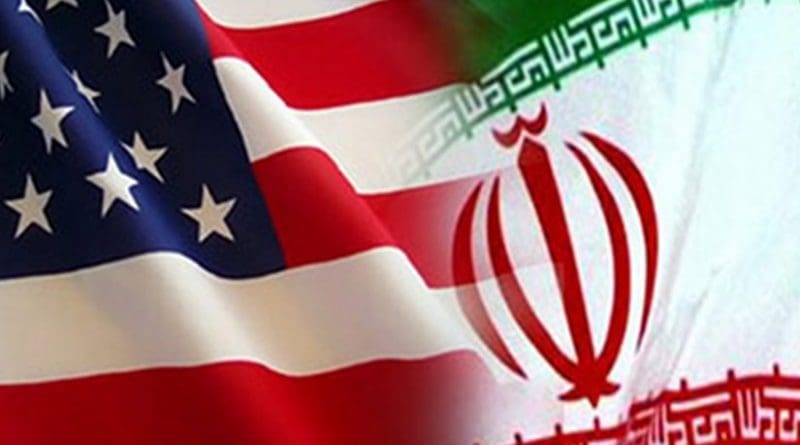Obama And Iran: Diplomacy On The Cards? – Analysis
By IPCS
By Shubhra Chaturvedi
One of Barack Obama’s biggest foreign policy challenges during his second term in the office would be handling the Iranian nuclear programme and its current situation. With the gradual progress of the Iranian nuclear programme and existing differences between the US and Iran, what will be the future of US policy towards Iran? Will Obama’s tenure see the worsening of the coercive policy in the name of necessary sanctions? Or will diplomacy get another chance?
Will sanctions work?
Barack Obama in the final presidential debate claimed that his administration had “organised the strongest coalition and the strongest sanctions against Iran in history, and it is crippling their economy.” Despite of claims to success, the gradual progression of Iran towards nuclear technology proves otherwise about the impact of these sanctions. Robert Menendez, the Junior Unites States Senator from New Jersey claimed that, “The window is closing. The time for the waiting game is over”. He also acknowledged the Iranian slither towards nuclear weapons by adding “Yes, our sanctions are having a demonstrable effect on the Iranian economy, but Iran is still working just as hard to develop nuclear weapons.”
Sanctions have been portrayed as the most effective way to deal with the violations of international norms by the US. Iran and North Korea prove otherwise. North Korea has been under sanctions since 2006 and yet it recently went ahead with the Unah-3 rocket launch violating the UNSC Resolutions. Chinese support to North Korea could be one of the reasons behind its defiant mood. It is also an indication of how the engagement with a change in leadership is difficult. This should be noted while dealing with Iran too with Ahmadinejad’s term coming to an end. The implicit Russian support to Iran is an additional feature that needs to borne in mind while analyzing the success rate of the sanctions in the Iranian case. It is true that sanctions have humanitarian costs and are the symbols of international unity against any nuclear proliferation; however, they fail due to the cloak and dagger support offered by other states.
Will diplomacy work?
Diplomatic initiatives from the US towards Iran might be desirable for both Iran and the US but it is a difficult task. Iran would want to buy time while the US would want to prevent another ‘Iraq’. But with the continuous US talks of worsening the sanctions, diplomacy seems to be a dim option.
An important issue is the constant diplomatic engagement with Mahmoud Ahmadinejad and not Ayatollah Khomeini, the “Supreme leader of Iran”. Reuters reported Khomeini’s views about the relations between Iran and the US claiming that, “By exploiting inattention … corrupt American, NATO and Zionist agents are trying to divert the deluge-like movement of Muslim youth and bring them into confrontation with one another in the name of Islam.” He added, “the aggressive and interventionist arrogant powers are making every effort to divert the course of these significant Islamic movements.” While the reference was to the Shia uprising in the Gulf, the mood of the leader towards the west is clear.
Another roadblock in the possibility of diplomatic exchanges is the issue of Israel. Iran has joined the “axis of resistance” movement which is an anti-Israel movement. The American statements about support for Israel have been provocative rather than anything productive or substantial. With the constant American blurting about prospective support to Israel, any form of advancement in ties between the US and Iran seems unlikely.
Iranian nuclear programme is a matter of constant worry for the ‘international community’. A major issue is the unsure nature of the Iranian plans and intentions which all the states are trying to gauge. The New York Times highlighted the possibility of ‘taqiyya’ in the Ayatollah Khomeini denial of the Iranian nuclear ambitions. Taqiyya is a form of religious dissimulation or a legal dispensation, which the Shia Islam propagates, whereby a believer can deny his faith or commit otherwise illegal or blasphemous acts when he/she is at a risk of significant persecution. Is it then possible that the denial of the nuclear programme is an extension of the same philosophy?
Conclusion
Sanctions imposed on any state endanger the common people and create a pressure on the state violating the international norms. Yet, an impending failure of sanctions in case of Iran is for sure. Diplomatic engagement between the US and Iran might at least bring Iran to the nuclear club headed by the US instead of the ‘opposite’ represented by the North Korea clout as of now. Iran’s nuclear ambitions are clear and it is not the question of “how” but rather “when” it fulfils them completely. Productive diplomatic exchanges with Iran are necessary not just for the sake of engagement but rather to welcome another emerging nuclear power in the international domain. It is time a substantial and well planned process commences to welcome this new member into the nuclear club.
Shubhra Chaturvedi
Research Officer, NSP, IPCS
email: [email protected]

